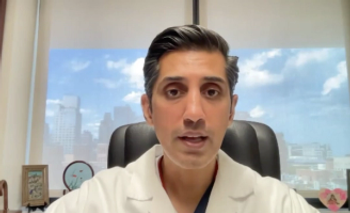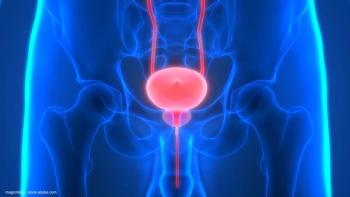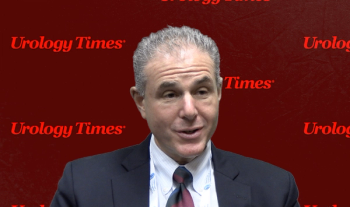
OAB and Incontinence
Latest News
Latest Videos

CME Content
More News

Machine learning isn’t new to medicine or to urology, but its potential remains largely untapped, according to the authors of two new Cleveland Clinic–led studies.

The pharmacokinetic drug GEMTESA, developed by Urovant Sciences, was given to adult patients as a single 75-mg dose in a phase 1 study.

“The takeaway is that sacral neuromodulation works well for men with overactive bladder and fecal incontinence, but perhaps less well for pelvic pain. We should see it as one of many multimodal treatments that we could offer for men with chronic pelvic pain,” says Dr. Elterman.

“With this study, we gained a better understanding of the features of third line therapy for overactive bladder, that patients find favorable and unfavorable,” says Anjali Kapur, MD.

“We wanted to help provide an understanding of what factors guide patient choice of third line therapy for overactive bladder,” says Anjali Kapur, MD.

eCoin is a new technology for the management of bladder overactivity that is implanted near the posterior tibial nerve subcutaneously.

“Even though this is a really large study, and it appears that vitamin D may not be a sole contributor to improving urinary incontinence or overactive bladder, there may be a subgroup of men who could potentially respond,” says Alayne Markland, DO.

“We did not happen to find that vitamin D compared to placebo lowered the odds of having incontinence at year 2 or year 5. Nor did it lower the odds of having overactive bladder symptoms at year 5,” says Alayne Markland, DO.

In this interview, Howard Goldman, MD, discusses the development of sacral neuromodulation as a treatment for overactive bladder (OAB).

"[Sacral neuromodulation has] changed the treatment of OAB remarkably," says Howard B. Goldman, MD, FACS.

“We wanted to compare outcomes between nursing home residents and community-dwelling older adults undergoing surgery for bladder and bowel dysfunction,” explains Anne M. Suskind, MD.

“When it comes to encouraging patients to utilize this therapy the number 1 thing I say is that it is the most effective therapy out there on the market,” says Raveen Syan, MD.

“I think my goal in doing all this research is to draw awareness to these problems and the disparities,” says Elisabeth M. Sebesta, MD.

“Health care disparities are very complex issues; it’s not like a linear cause-and-effect relationship,” says Elisabeth M. Sebesta, MD.

“[We] found that women were spending on average, nearly $35 a week on incontinence products in the highest symptom severity, which is a huge financial burden,” says Elisabeth M. Sebesta, MD.

“I’ve been using it my practice and also based on the literature, it seems like it is a relatively safe extract with little to no change in sexual function…and no obvious contraindications,” says Bilal Chughtai, MD.

Sacral neuromodulation administered through an implantable neurostimulator has shown promise as a therapy for patients with bladder and bowel dysfunction.

Axonics F15, a recharge-free sacral neuromodulation implantable neurostimulator for the treatment of patients with bladder and bowel dysfunction, was approved by the FDA earlier this year.

Cleveland Clinic specialist discusses the implications of the first published guideline for neurogenic lower urinary tract dysfunction

In this interview, Catherine Ann Matthews, MD, FACS, FACOG, discusses the resurgence of single-incision slings and outlines a clinical trial of slings that she is currently leading.

Urologists tend to prescribe more expensive drugs than nonurologists.

"A significant unmet need remains among long-term care residents with incontinence related to OAB,” said Sef Kurstjens, MD, PhD.

"Now with FDA approval, patients will have much improved ability to use this efficacious therapy on a long-term basis, which is most beneficial for them," Roger R. Dmochowski, MD, MMHC.

“The implications of the findings are that the SUI literature is, perhaps, not as good as it could be, but there’s hope,” says Eric S. Rovner, MD.

The investigators conducted a study that evaluated real-world urinary incontinence episodes and the benefit of onabotulinumtoxinA in individuals refractory to 1 or more oral medications.











